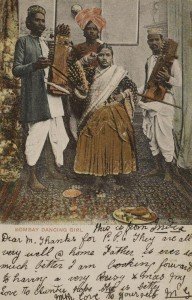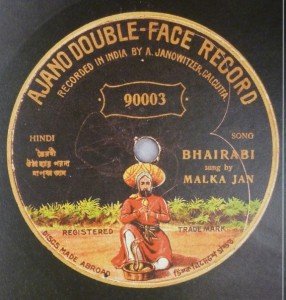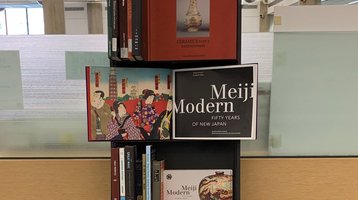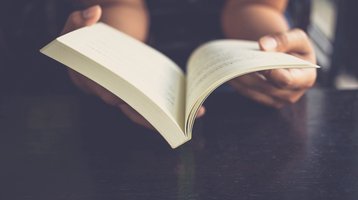Born in the Library: The Neubauer Collegium
The Neubauer Collegium kicks off its first programming year with Library collaboration

The Neubauer Family Collegium for Culture and Society opens its doors this fall on the premises of its first home—the Joseph Regenstein Library. As scholars from around the world meet here to investigate complex questions that transcend any single discipline or methodology, they draw on the collections, spaces, and staff expertise of the University of Chicago Library.
“The Library has long been a mecca for scholars,” said Judith Nadler, Director and University Librarian. “We are delighted to continue this tradition by working closely with the Neubauer Collegium to enable the investigation of big questions in the humanities and humanistic social sciences.”
“Libraries have always been the great laboratories of the humanities, so it is particularly fitting that we should spend our infancy nourished by the generosity of the Regenstein,” said David Nirenberg, the Roman Family Director of the Neubauer Collegium for Culture and Society. “And our relationship will always remain close, even after we move into our own building. After all, the Library’s treasures are one of the greatest attractions that bring scholars from all over the world—including our Neubauer Visiting Fellows—to Chicago.”
Three events exemplify the Neubauer Collegium’s collaboration with the Library.
Audio Cultures of India: Sound, Science, and History

One of the first events on the Neubauer Collegium calendar, the “Audio Cultures of India” workshop brought project team members and other interested scholars together in Regenstein on September 16 and 17. A second workshop will follow in New Delhi, India, immediately after the opening of the University’s India center at the end of March 2014. The workshops are part of the larger Neubauer Collegium funded project, Audio Cultures of India: New Approaches to the Performance Archive.
Directed by Professors Philip V. Bohlman and Kaley Mason of the Department of Music and by Bibliographer for Southern Asia James Nye and Cataloger and Assistant Southern Asia Librarian Laura Ring of the Library, workshop participants from the University and other institutions are gathering to investigate how the methods of big science might elucidate and facilitate the humanistic understanding of music, speech, and other audio expressions. They are exploring the scientific analysis of sonic recordings, the history of sound in South Asia, and the intersection of audio with such related material artifacts as texts and images. The participants include computational scientists, statisticians, and physicists as well as South Asian specialists in ethnomusicology, linguistics, anthropology, literature, history, geography, and libraries.
Neubauer Collegium Launch Panel Discussion: William Kentridge and Jane Taylor
Following an opening lecture on October 3 in Mandel Hall delivered by internationally acclaimed South African artist William Kentridge, Regenstein’s Room 122 was the site for a panel discussion and reception featuring Kentridge; South African writer, curator and scholar Jane Taylor, a frequent visiting professor at the University of Chicago; and David Nirenberg, who moderated. Speaking on “The Virtues of Bastardy: Mixed Metaphors and Collaborations in the Studio,” Kentridge and Taylor discussed their experiences collaborating with artists ranging from puppeteers to writers to opera singers on projects such as Taylor’s play Ubu and the Truth Commission and Shostakovich’s opera The Nose.
A Worldwide Literature: Jāmī (1414-1492) in the Dar al-Islam and Beyond
This project is developing a research agenda on intellectual trends in the post- classical Muslim tradition by studying the reception of works by the luminary fifteenth-century ‘Abd al-Rahmān Jāmī . The Library’s Southern Asia Department is assisting Professor Thibaut d’Hubert in the preparation of a digital collection and searchable corpus of Unicode texts comprising Jāmī’s works and the Indian commentaries published by Naval Kishore in the nineteenth century. The project is benefiting from well-established bonds between the Library and colleagues in Lahore, Pakistan, who are undertaking digitization of the texts by Jāmī and with the ARTFL Project (Project for American and French Research on the Treasury of the French Language) on campus for presentation of the texts in collaboration with the Digital South Asia Library.
On November 14 and 15, specialists working with languages ranging from Persian, Ottoman Turkish, and Arabic to Malay, Chaghatay, Chinese, Sanskrit and Bengali attended a conference at the University of Chicago Center and the College de France in Paris. They are studying comparatively, for the first time, the variegated impact of Jāmī’s works on the post-classical Islamic intellectual traditions, and particularly on the formation of new vernacular literary idioms.


